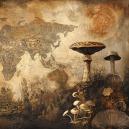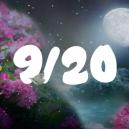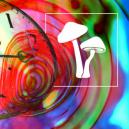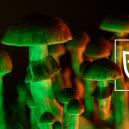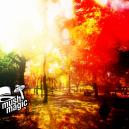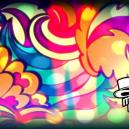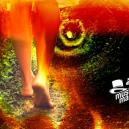Can Magic Mushrooms Help To Fight Fears?
Published :
May 26th, 2017
Categories :
Health

Psilocybin was showing great promise as a psychotherapeutic treatment until it was made illegal in 1970. Contemporary studies are proving, that psilocybin and other psychedelics may play an important role in psychiatry of the future. Helping further our knowledge of anxiety, depression, consciousness and the functon of the mind.
Being diagnosed with terminal cancer is unavoidably distressing news. Often the patient spirals into hopelessness, depression and anxiety about death. These psychological crises have always proved difficult to manage with traditional psychological methods and pharmaceuticals. Recent investigations into the hallucinogenic compound psilocybin may be the beginnings of a paradigm shift in treating terminally ill patients.
Psilocybin, the main active compound in over 180 species of magic mushrooms is providing mystical and transformative experiences for terminally ill patients. Patients suffering from existential stress and other end of life crises are finding immediate and long-term relief with psilocybin. Typically identifying with the body as it fades and dies encourages depression. Psilocybin allows the transcendence of the trap of the body. All patients report an ineffable experience, that literally banishes negativity.
A comprehensive body of clinical work exists from the fifties up until the early seventies when prohibition and the war on drugs began. 40,000 subjects tested, tens of thousands of pages of research produced and published. Psiloybin and other psychedelics had a promising and bright future in the treatment of mental health. Indiscriminate and irresponsible use among the general population when LSD exploded onto the cultural scene caused the prohibition backlash. Funding for more research into psychedelics dried up overnight.
Filtering out the white noise sensationalism and stigma left over from the counterculture of the fifties, sixties and early seventies, research has begun again at a number of institutions. The promising results were unseen before in psychiatry regarding terminally ill patients. New roads are being paved for the use of clinical psilocybin and other psychedelics for palliative and mental health care.
Regularly prescribed medicines such as Prozac and Zoloft must be taken daily for years for their effects to last. Even then there can be a number of unwanted side effects and the financial and community costs can become prohibitive. Psilocybin is transformative with just one clinically managed session and the benefits can last for months or even years.
The New York University School of Medicine Psilocybin/Cancer Research Project has rediscovered what shamans have known for centuries. That psilocybin affords a life transforming experience for those with terminal illness. It is an exciting time when scientists are finding, that love is more than an abstract quality. That being at one, living in the now and interconnectedness aren't hippie mantras, but quantifiable legitimate states of being.
Rigorous scientific methodology and the highest standard of observation by clinical psychiatrists evaluated the benefits, that psilocybin may provide. 70% of the participants said, that the psilocybin experience was one of the top five most meaningful and significant or most significant of their life. 52% of the participants said, that the psilocybin experience was one of the top five most spiritual or the most spiritual of their lives.
The characteristics of the mystical psilocybin experience have implications, that affect the individual and the field of psychiatry as a whole. Observations of improved psychological, spiritual and existential wellbeing are giving value to obscure terms like unity, noetic quality and sacredness. There is an immediate, then sustained deeply felt positive mood. The source of which can't be adequately described and patients are literally ineffable.
During sessions patients would express overwhelming joy, blessedness, peace and love. A deep sense of connectedness with profound feelings of insight and wonder were often accompanied by tears. Prominent themes were transcendence, love, equanimity and an enhanced acceptance of personal impermanence.
A clinical sample is from a 54 year old male with bile duct cancer. He met all the prerequisites for participating in the test. He reported the experience to be "life-changing" and "like nothing I have experienced before". He says his "quality of life has greatly improved". He experiences less anxiety about cancer and death and has a better relationship with his wife.
The clinical implications primarily mean improving how we die. Patients can transform the experience of cancer from provoking anxiety into something transpersonal and healing. The shift in awareness increases the capacity to appreciate time living and accept death as part of life's cycle. Relationships are enhanced with greater ability to express love, intimacy and forgiveness. Important healing qualities for the individual and loved ones at the end of a life.
Outdated prohibitive laws need to be reassessed in the light of compassion rather than stubbornly adhering to antiquated paranoia. 8.2 million people die from cancer annually around the world. In every instance the positive effects of psilocybin would have uplifted the individual and their loved ones. Tens of millions of people die from long-term fatal conditions other than cancer. Hundreds of millions more suffer from the scourges of the modern age, anxiety and depression. A significant percentage of the population of the entire world! These figures alone demand the conscientious clinical research of psychedelic-based mental health and palliative care.





